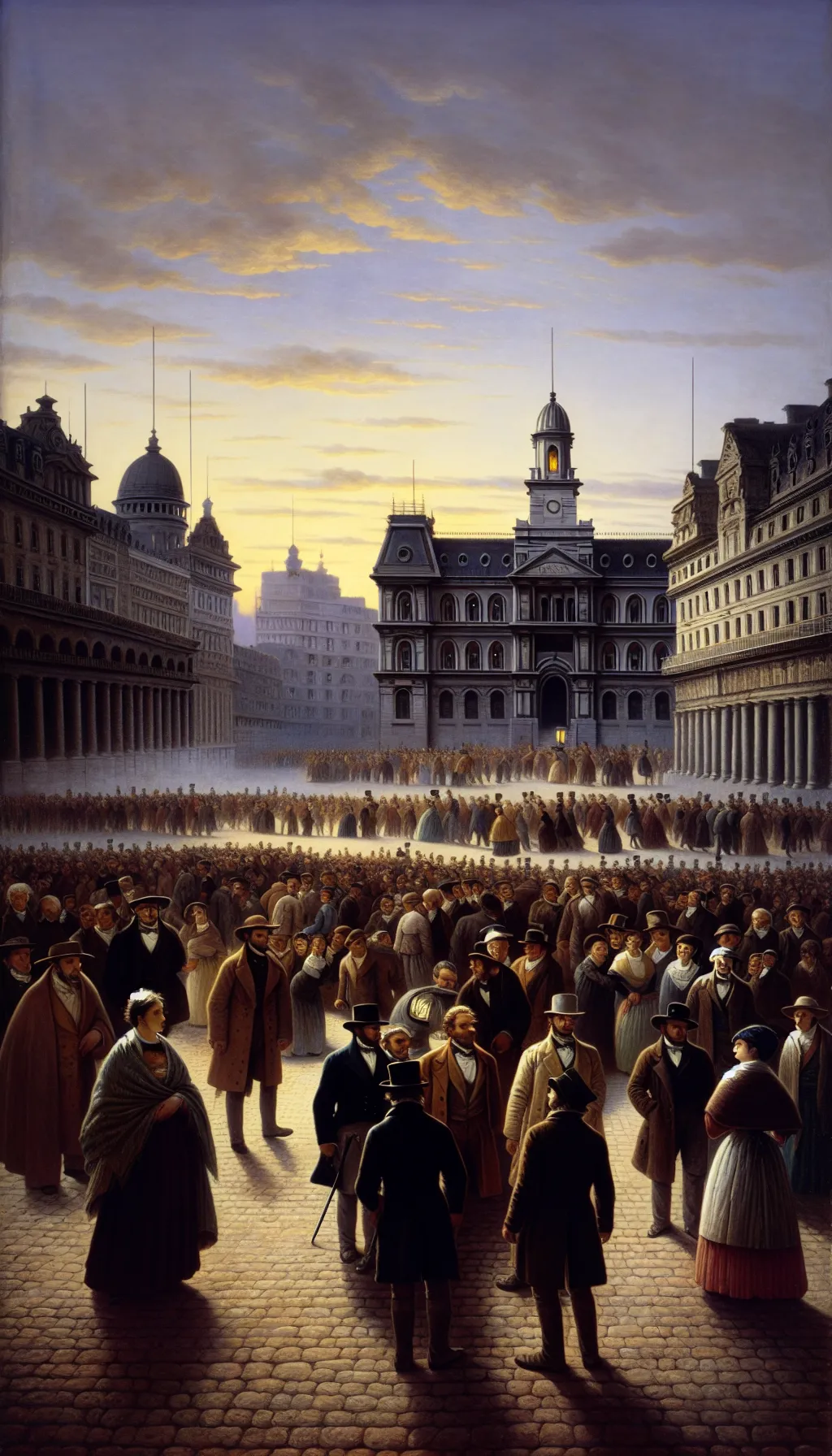Argentina – The Dawn of Self-Rule: May 25, 1810
TLDR;
- Event: On May 25, 1810, Buenos Aires witnessed the May Revolution, leading to the establishment of the Primera Junta, a local government replacing Spanish colonial rule.
- Cause: Inspired by Napoleon’s invasion of Spain and growing discontent with distant Spanish rule, the revolution was a pivotal step towards Argentine independence.
- Outcome: This event set the stage for the Argentine War of Independence, culminating in the formal declaration of independence on July 9, 1816.
- Legacy: The May Revolution not only marked the beginning of Argentina’s path to self-rule but also inspired independence movements across Latin America.
–
Story
The air in Buenos Aires crackled with anticipation on the morning of May 25, 1810. The Plaza Mayor was a sea of restless citizens, their eyes fixed on the Cabildo, the seat of colonial power. Inside, a tense debate raged, the outcome of which would alter the course of history.

For years, the people of Buenos Aires had chafed under the distant rule of the Spanish Crown. The winds of change were blowing across the Americas, and the news of Napoleon’s invasion of Spain had only fanned the flames of discontent. The time was ripe for revolution.
As the sun climbed higher, the crowd outside grew larger and more impatient. They demanded a government that represented their interests, not those of a distant king. Inside the Cabildo, the pressure was mounting. Finally, after hours of deliberation, the decision was made: the Viceroy, Baltasar Hidalgo de Cisneros, was pressured to step aside, and a new local government, the Primera Junta, was established, claiming to govern in the name of the deposed Spanish King Ferdinand VII.
The May Revolution was more than just a political upheaval; it was a crucial step toward self-rule. It marked the beginning of a process that would eventually lead to the Argentine War of Independence, a struggle that would culminate in the formal declaration of independence on July 9, 1816, at the Congress of Tucumán. The events of that day ignited a spark of liberty that would inspire movements throughout Latin America, though it was preceded by other uprisings like the Chuquisaca and La Paz revolts in 1809.
As the news spread, the people of Buenos Aires erupted in celebration. The dream of self-determination was no longer just a dream—it was a reality in the making.
–
| Would a different decision in the Cabildo have changed the course of Argentine history? |